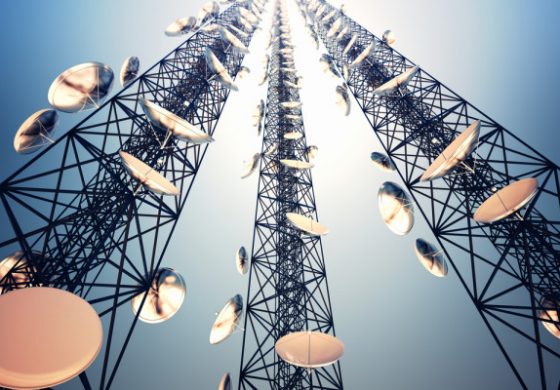Nigeria requires about 80,000 Base
Transceiver Stations (BTS) to be able to provide optimum services to the
growing telecoms subscribers in the country.
Transceiver Stations (BTS) to be able to provide optimum services to the
growing telecoms subscribers in the country.
Dr Lawal Bello, Manager, Technical
Standards and Network Integrity, Nigerian Communications Commission
(NCC) said the country currently had about 50,000 BTS spread across the
nation.
Standards and Network Integrity, Nigerian Communications Commission
(NCC) said the country currently had about 50,000 BTS spread across the
nation.
He said that the spate of vandalism to
telecoms infrastructure across the country had greatly retarded the pace
of growth of services.
telecoms infrastructure across the country had greatly retarded the pace
of growth of services.
On deployment of fibre cable for
broadband access, he said the country currently has about 38,000
kilometres of fibre cable with a pending requirement of 120,000
kilometres to have good broadband access.
broadband access, he said the country currently has about 38,000
kilometres of fibre cable with a pending requirement of 120,000
kilometres to have good broadband access.
Bello therefore, reiterated that the
protection of telecoms equipment and infrastructure should not be seen
as NCC and Security Agencies’ responsibility but the responsibility of
all patriotic citizens.
protection of telecoms equipment and infrastructure should not be seen
as NCC and Security Agencies’ responsibility but the responsibility of
all patriotic citizens.
He said that it was against this backdrop
that the NCC recently organised a sensitization workshop on the
Protection of Telecom Infrastructure in Lokoja to interface with
stakeholders including subscribers.
that the NCC recently organised a sensitization workshop on the
Protection of Telecom Infrastructure in Lokoja to interface with
stakeholders including subscribers.
Also Mrs Helen Obi, Head of Zonal
Operations, NCC, Obi dispelled the rising public concerns on likely
negative health implications of EMF radiation emanating from telecom
masts.
Operations, NCC, Obi dispelled the rising public concerns on likely
negative health implications of EMF radiation emanating from telecom
masts.
She said the telecom iron masts do not
emit harmful radiations and urged communities to help protect the
infrastructures in their localities and domains to enhance delivery of
quality service.
emit harmful radiations and urged communities to help protect the
infrastructures in their localities and domains to enhance delivery of
quality service.
Obi said the recent workshop in Lokoja
was to enlightening the public on the need for them to know that the
they collectively owned telecom as well as other public infrastructures
and should collectively protect them.
was to enlightening the public on the need for them to know that the
they collectively owned telecom as well as other public infrastructures
and should collectively protect them.
She added that it would also help the
stakeholders to reach an understanding towards putting into proper
perspective the concerns often expressed by the public about telecom
infrastructure and services.
stakeholders to reach an understanding towards putting into proper
perspective the concerns often expressed by the public about telecom
infrastructure and services.
“It is instructive to note that the
advent of GSM has re-engineered our economy and social wellbeing, but
these facilities have been target of vandalism, theft and hostility from
some host communities.
advent of GSM has re-engineered our economy and social wellbeing, but
these facilities have been target of vandalism, theft and hostility from
some host communities.
“It is therefore imperative for the
public to regard telecom facilities as “collectively owned
infrastructures” essential for the provision of efficient and acceptable
quality service,” Obi said.
public to regard telecom facilities as “collectively owned
infrastructures” essential for the provision of efficient and acceptable
quality service,” Obi said.





